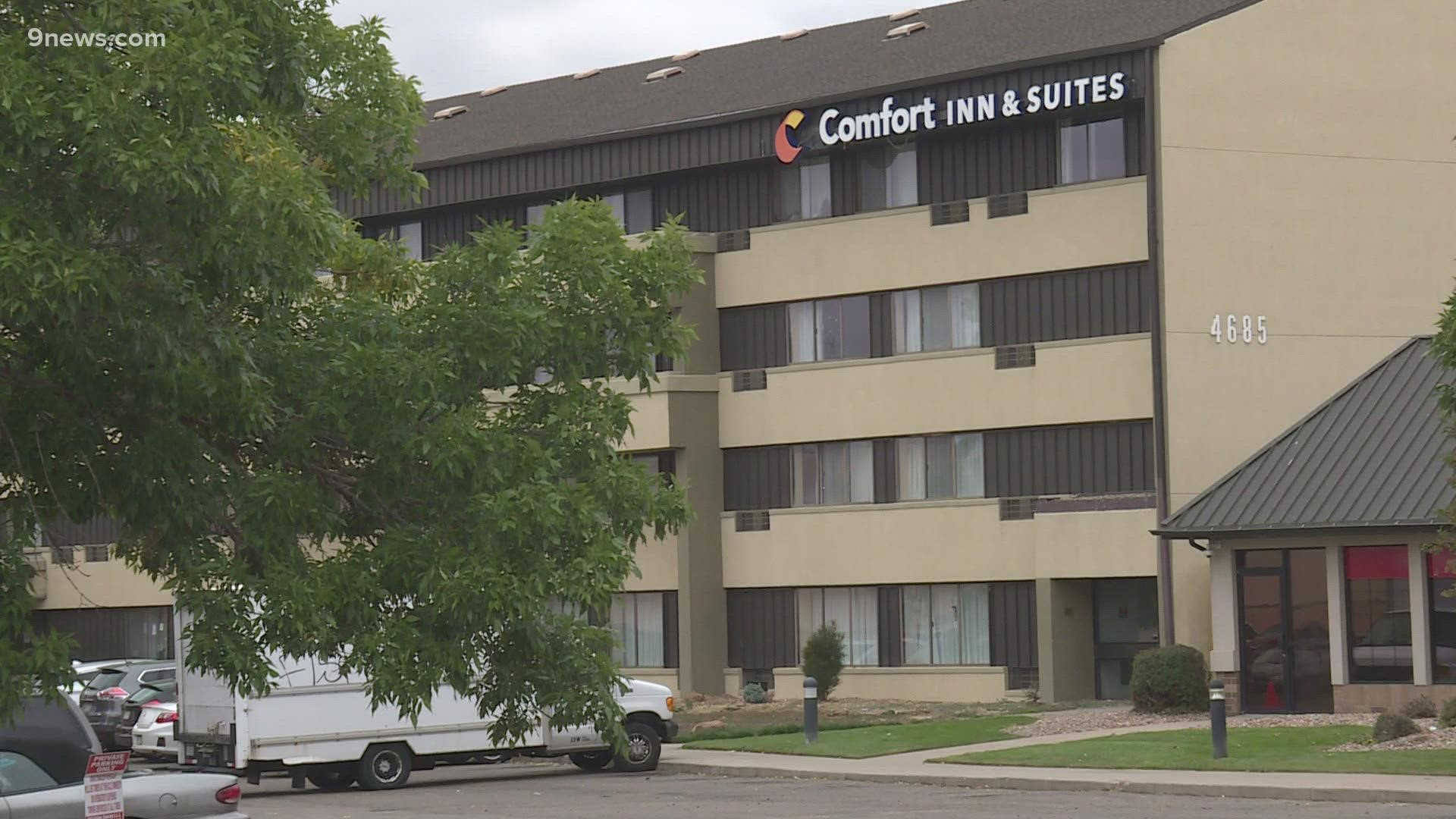DENVER — There are hotel rooms paid for and reserved in Denver for people experiencing homelessness.
There are more than 150 rooms empty.
It's because people have to meet pandemic-related criteria to use them since they're paid for with money from the Federal Emergency Management Agency (FEMA).
"FEMA only allows us to offer non-congregant shelter to people with certain qualifying conditions," said Britta Fisher, Denver's Chief Housing Officer.
Those criteria are one of the following:
- Older than 65
- Health condition putting them at great risk of COVID-19
- Actively sick with COVID-19
"The people that we're serving with non-congregant shelter, here in Denver, are largely people over the age of 65 and/or on oxygen," said Fisher.
There are five hotels being used by the city of Denver or Colorado Coalition for the Homeless.
The vacancy rate is tracked based on rooms for three of the hotels, and by bed occupancy for two of the hotels.
For the three hotel-shelters tracked by rooms, 303 of 451 rooms are occupied as of Tuesday. That means one-third of the rooms are vacant.
Of the two hotel-shelters tracked by bed occupancy, one is solely for those sick with COVID-19.
The one that is for anyone older than 65 or at-risk of COVID-19, 92 of 138 rooms are occupied as of Tuesday. One-third are empty.
The hotel-shelter for those sick with COVID-19 has 36 of 191 beds occupied as of Tuesday. Four-out-of-five beds in that hotel are empty.
"One of the facilities is activated 'respite,' is what we call it. It's for someone who is symptomatic or positive for COVID to get better, and we're really fortunate that that facility is not highly utilized," said Fisher. "As you might imagine, we don't want to put people at grave risk in the same place with people who are sick."
Even if you exclude the shelter for those sick with COVID, there are vacant rooms that the city has paid for already.
"Every day we're going to have vacancies in these motels," said Cathy Alderman from Colorado Coalition with the Homeless. "When we're able to move people out, their room becomes vacant and it may take us some time to turn that room over and make it appropriate for another person to come in."
Two of the hotel-shelters have lower occupancy rates because they were set to close on Thursday when FEMA funding expired.
One of those shelters is the Aloft Hotel at 15th and Stout Streets downtown. Of 140 rooms, 42 are vacant.
The federal funds were extended, and earlier this month, Denver City Council approved an additional $11 million (that will be reimbursed by FEMA) to keep the shelters running.
"Now we're trying to rehire staff and reevaluate folks for being able to get into those rooms," said Alderman. "There is a screening process and a referral process in place to make sure that we're spending the federal dollars appropriately."
Another shelter is the Comfort Inn and Suites near Interstate 70 and Quebec Street.
Just feet from the shelter entrance is Sand Creek, where at least one person was camping as of Thursday morning.
"We do move a lot of people from encampments into the motel rooms, but again, they still have to meet the criteria of being at high-risk," said Alderman. "Unfortunately, because of the nature of the federal funding for COVID response, we can't just allow people to walk up these motel locations and say that they need a place to sleep for the night."
This type of shelter is different than housing for anyone experiencing homelessness.
One of the issues on the November ballot in Denver is Referred Question 2B. It is part of the city's bond package. Issue 2B asks voters to approve $38 million in borrowing, in part, to purchase and convert hotels and motels into housing for people experiencing homelessness, regardless of the pandemic.
SUGGESTED VIDEOS: Full Episodes of Next with Kyle Clark

